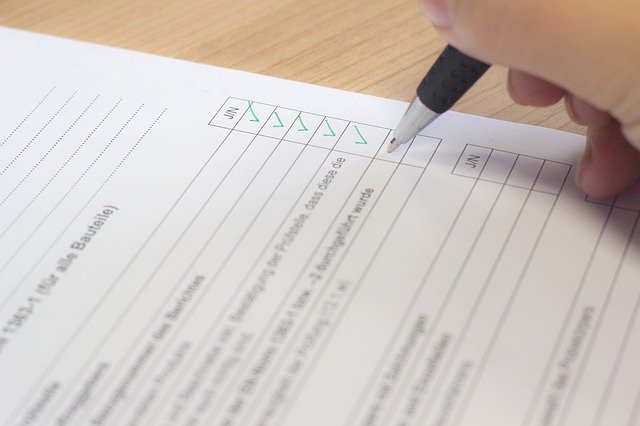How do I start?
You want to start your own business but you are desperate because you don’t know where to begin? The following 10 steps will guide you through the starting process.

#1
Be original
It all starts with a creative and original idea.
This means that prior to starting your business, you will probably spend a lot of time on fine-tuning your idea, thinking about the products or services you will offer and the way you will commercialise all this.
Put yourself in the customer’s shoes. Through the internet, newspapers and magazines you can gather a lot of information and inspiration in a short period of time, be sure to make proper use of this. Test your ideas with friends, relatives and other entrepreneurs.
#2
Get well informed
Having your own business is not just about having a good idea. Your decision will have a number of important consequences, also for you private life. Ask yourself as many questions as possible and try to collect as much information as possible.
Ask yourself the following questions:
- 1. What do I see as advantages and disadvantages of being self-employed?
- 2. Do I have the necessary knowledge and degrees?
- 3. Do I start a company or a one-man business?
- 4. As a starter, can I benefit from subsidies?
- 5. Which formalities do I have to take care of when I start a business?
- 6. How much does it cost to start my own business?
- 7. Does my partner support my plans to become self-employed?
- 8. Do I have a feasible project?
- 9. …
Not everyone can start their own business just like that. In most cases you have to prove your basic knowledge of business management and in some cases specific professional knowledge is required.


#3
Make sure that your social statute has been taken care
The social statute of self-employed is different to that of an employee. Whereas an employee does not have to take the necessary steps himself to be compliant with his social statute, a self-employed person needs to join a social insurance fund. Every three months you will pay contributions to this fund.
You can either start as self-employed in main profession or in secondary profession. If you are a self-employed in main profession, it means that your self-employed activity is your principal occupation. If next to your self-employed activity, you have another profession for which you perform at least part-time activities, you are self-employed in secondary profession.
#4
Translate your idea into a workable concept
Your wonderful idea will remain a wonderful idea, unless you develop a concrete concept. To do this, it is best to draft a marketing or business plan. This plan will tell you how to bring your idea to the customer. The 4 elements that are important in this are:
- 1. Product: Which products or services do you want to offer?
- 2. Price: How much will you ask for your product?
- 3. Place: Where do you sell your product and through which channels?
- 4. Promotion: How do you promote your product to potential customers?
It is key to find an ideal mix of these four elements in order to respond to the customer’s needs and to achieve your goals. In order to get a good answer to the above questions, it is important to have enough information about the sector in which you want to start your business.


#5
Check the feasibility by means of a financial plan
You can have a good idea, but it is financially feasible? In order to have an answer to this, you can best draft a financial plan. It translates the ideas and strategies of your marketing plan into actual figures. It will tell you immediately whether your initial idea and marketing plan will work.
A financial plan gives you an answer to questions such as:
- 1. How much does it cost to realise my ideas?
- 2. How much can I earn?
- 3. Which costs and revenues can I expect?
- 4. How much do I have to invest?
- 5. Is my plan financially feasible and viable?
When you start your own business, you have to choose in which legal form you want to start. You can choose between a company or a one-man business. Your choice will have an impact on the taxes you will need to pay, but also on your liability as entrepreneur and the cost this will entail.
#6
Choose the most appropriate legal form
When you start your own business, you have to choose in which legal form you want to start. You can choose between a company or a one-man business. Your choice will have an impact on the taxes you will need to pay, but also on your liability as entrepreneur and the cost this will entail.


#7
Find the necessary resources
When you do not have enough resources to invest in your business yourself, you have to find them elsewhere.
However, banks are not keen on providing loans that easily. They are interested in well-substantiated financing projects from which both the entrepreneur as themselves can benefit.
When you have a good financial plan, it will be a lot easier to find the necessary finances.
As a starter you can often count on a number of subsidies:
- 1. For a low-cost starter loan you can go to the Participatiefonds.
- 2. For innovative projects you can reach out to the Flemish government.
- 3. You can also borrow money from friends or family in the form of a win win loan.
- 4. In order to accommodate the lack of guarantees, you can request a guarantee scheme.
- 5. A lot of incentives are also foreseen for hiring personnel.
These incentives are usually not unconditional. One cannot assume that every starter is eligible for all supporting measures.
#8
Take care of the administrative formalities
When your marketing and financial plan are ready, you still have to take care of a number of formalities before your can start your business.
The following checklist can help you:
- 1. Opening a bank account in the name of the company
- 2. Determine a place of establishment
- 3. Request a company number with a recognised enterprise counter
- 4. Activate your VAT-number
- 5. Request the necessary licences at the appropriate authority
- 6. Register with a social insurance fund for self-employed and with a health insurance fund
- 7. Additional formalities for companies
- 8. Additional formalities for personnel
In case you need help to fulfil these formalities, you can contact one of the recognised enterprise counters. They will be happy to assist you.


#9
Go through the practical checklist
When your business plan is ready, when you have the necessary financial resources and you have fulfilled all the administrative requirements, you are on the brink of starting your own business.
A few small practical preparations and you can get started:
- 1. Choose a company name
- 2. Rent or buy a commercial property
- 3. Decorate the place of business
- 4. Hire personnel
- 5. Conclude an insurance
- 6. Get a telephone and internet connection
- 7. Have the electricity connected
- 8. Prepare the opening promotion
- 9. Start the administration
#10
Persevere
As you can see, there is a lot involved in starting your own business. The first years there are usually a few tough nuts to crack.
The best is not to leave anything to coincidence and have a good planning. But you will see that this pays off in the end.
You get the opportunity to fulfil your dreams, so grab it with both hands.

